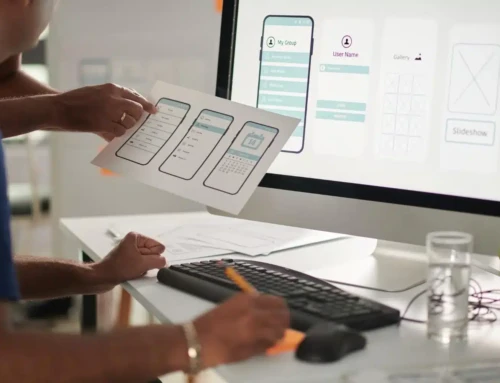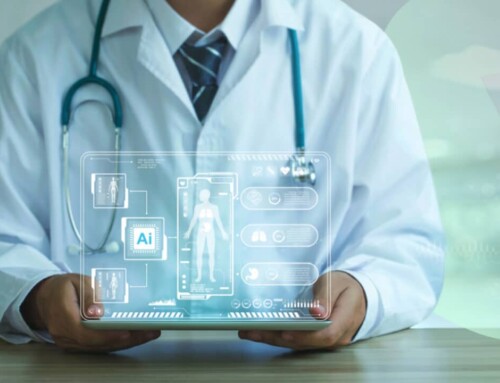Benefits of Mobile App Development for the Medical Industry
Technology continues to revolutionize various sectors, and the healthcare industry is no exception. With the rise of smartphones and mobile applications, there has been a significant impact on the way medical services are accessed and delivered. Mobile app development has opened up new avenues for improved patient care, streamlined processes, and enhanced communication in the medical field. In this article, we explore the extensive benefits of utilizing mobile apps in the medical industry.
Improved Accessibility and Convenience
One of the key advantages of mobile app development in the medical industry is improved accessibility and convenience for patients. Mobile apps provide a seamless platform for patients to access healthcare services, regardless of their location or time constraints. Through mobile apps, patients can easily book appointments, view medical records, receive test results, and access vital information about their health conditions. This increased accessibility empowers individuals to take a proactive approach towards their well-being.
Furthermore, mobile apps offer the convenience of appointment scheduling and reminders. Patients can book appointments with just a few taps on their smartphones and receive automated reminders to ensure they never miss important medical consultations. This not only improves patient compliance but also reduces no-show rates, optimizing healthcare provider schedules and resource allocation.
In addition, mobile apps enable remote consultations and telemedicine, which have become especially valuable in situations where physical visits may be challenging or not feasible. Patients can connect with healthcare professionals through video calls or secure messaging, receiving medical advice and treatment plans from the comfort of their homes. This level of convenience revolutionizes healthcare delivery, particularly for patients with limited mobility, chronic illnesses, or those living in remote areas.
Efficient Health Monitoring and Management
Mobile apps play a crucial role in health monitoring and management, empowering individuals to track and manage their health conditions effectively. With the integration of various sensors and wearable devices, mobile apps enable remote patient monitoring, allowing healthcare providers to collect real-time data and monitor vital signs. This data-driven approach helps in early detection of abnormalities or changes in health parameters, enabling timely interventions and preventing complications.
Moreover, mobile apps provide personalized health tracking and self-management tools. Patients can record their symptoms, monitor medication adherence, track physical activity, and manage lifestyle factors such as diet and sleep patterns. These apps often offer reminders, notifications, and progress tracking features to keep individuals motivated and accountable for their health goals. By fostering active patient participation, mobile apps facilitate self-care and empower individuals to make informed decisions about their well-being.
Furthermore, the integration of mobile apps with wearable devices and Internet of Things (IoT) devices further enhances health monitoring capabilities. Wearables such as fitness trackers and smartwatches can collect data on heart rate, steps taken, sleep patterns, and more. Mobile apps can sync with these devices, providing a comprehensive overview of the individual’s health status. This holistic approach to health management allows healthcare providers to deliver personalized care plans and interventions.
Streamlined Communication and Collaboration
Effective communication and collaboration are vital in the medical industry, where timely and accurate information exchange can make a significant difference in patient outcomes. Mobile apps facilitate streamlined communication and collaboration among healthcare professionals, improving the overall efficiency of healthcare delivery.
Secure messaging features within mobile apps enable healthcare providers to communicate in real-time, enhancing care coordination and reducing response times. Physicians, nurses, and other medical staff can share patient information, discuss cases, and seek opinions or consultations efficiently. This seamless communication platform minimizes delays, improves decision-making, and ensures a comprehensive approach to patient care.
Additionally, mobile apps enable the seamless sharing of medical records, test results, and imaging reports among healthcare professionals. Gone are the days of physically transferring bulky paper files or relying on slow and error-prone methods. With mobile apps, healthcare providers can access and review patient data instantly, facilitating accurate diagnoses and enabling faster treatment decisions.
Enhanced Patient Engagement and Education
Patient engagement plays a pivotal role in improving health outcomes and overall satisfaction. Mobile apps provide an excellent avenue for healthcare providers to engage patients actively and empower them with relevant health information.
Mobile apps offer educational resources and health-related information, allowing patients to access reliable and up-to-date content. From articles and videos to interactive tools and infographics, these apps can educate individuals about various health conditions, preventive measures, medication instructions, and lifestyle modifications. Empowered with knowledge, patients can make informed decisions and actively participate in their treatment plans.
Furthermore, mobile apps can incorporate interactive features that promote medication adherence and lifestyle management. These apps can send medication reminders, track dosage schedules, and provide insights into potential drug interactions or side effects. Additionally, they can offer tools for monitoring and managing exercise routines, nutrition plans, and stress reduction techniques. By encouraging healthy habits and personalized interventions, mobile apps contribute to improved patient outcomes and overall well-being.
Cost Reduction and Operational Efficiency
Mobile app development in the medical industry has the potential to drive cost reduction and enhance operational efficiency for healthcare providers. By leveraging technology, these apps streamline various administrative tasks and reduce paperwork, enabling staff members to focus more on patient care.
Tasks such as appointment scheduling, billing, and insurance claims can be automated through mobile apps, reducing manual errors and optimizing resource utilization. Administrative staff can handle these processes efficiently, saving time and effort. Moreover, mobile apps can integrate with electronic health record (EHR) systems, ensuring seamless data flow and minimizing duplication of efforts.
Another significant advantage of mobile apps is the potential to minimize unnecessary hospital visits and readmissions. Through remote monitoring and telemedicine features, healthcare providers can monitor patients’ progress, provide timely interventions, and identify any red flags. This proactive approach can prevent complications, reduce the need for hospitalization, and lower healthcare costs in the long run.
Data-Driven Insights and Decision-Making
Mobile app development in the medical industry enables healthcare providers to harness the power of data and analytics, leading to data-driven insights and improved decision-making.
By collecting and analyzing large volumes of health data, mobile apps can generate valuable insights into patient populations, disease trends, and treatment outcomes. These insights can inform public health initiatives, research studies, and healthcare policy decisions. Additionally, healthcare providers can leverage data analytics to identify patterns, predict health risks, and personalize treatment plans based on individual patient characteristics.
Mobile apps equipped with decision support tools can assist healthcare professionals in evidence-based decision-making. These apps can provide access to clinical guidelines, medical literature, and best practices, helping physicians make well-informed diagnoses and treatment recommendations. This integration of technology and clinical expertise enhances the quality of care and patient safety.
Conclusion
Mobile app development has brought numerous benefits to the medical industry, revolutionizing the way healthcare services are delivered and accessed. From improved accessibility and convenience to streamlined communication, enhanced patient engagement, and cost reduction, mobile apps have transformed healthcare experiences. With their potential to provide data-driven insights and personalized care, these apps have become indispensable tools for healthcare providers.
If you are interested in developing a mobile app for your medical practice or healthcare organization, look no further than Seattle Software Developers. With our expertise in mobile app development and commitment to excellence, we are the ideal partner to bring your app vision to life. Contact Seattle Software Developers today to discuss your requirements and turn your mobile app dreams into a reality.





